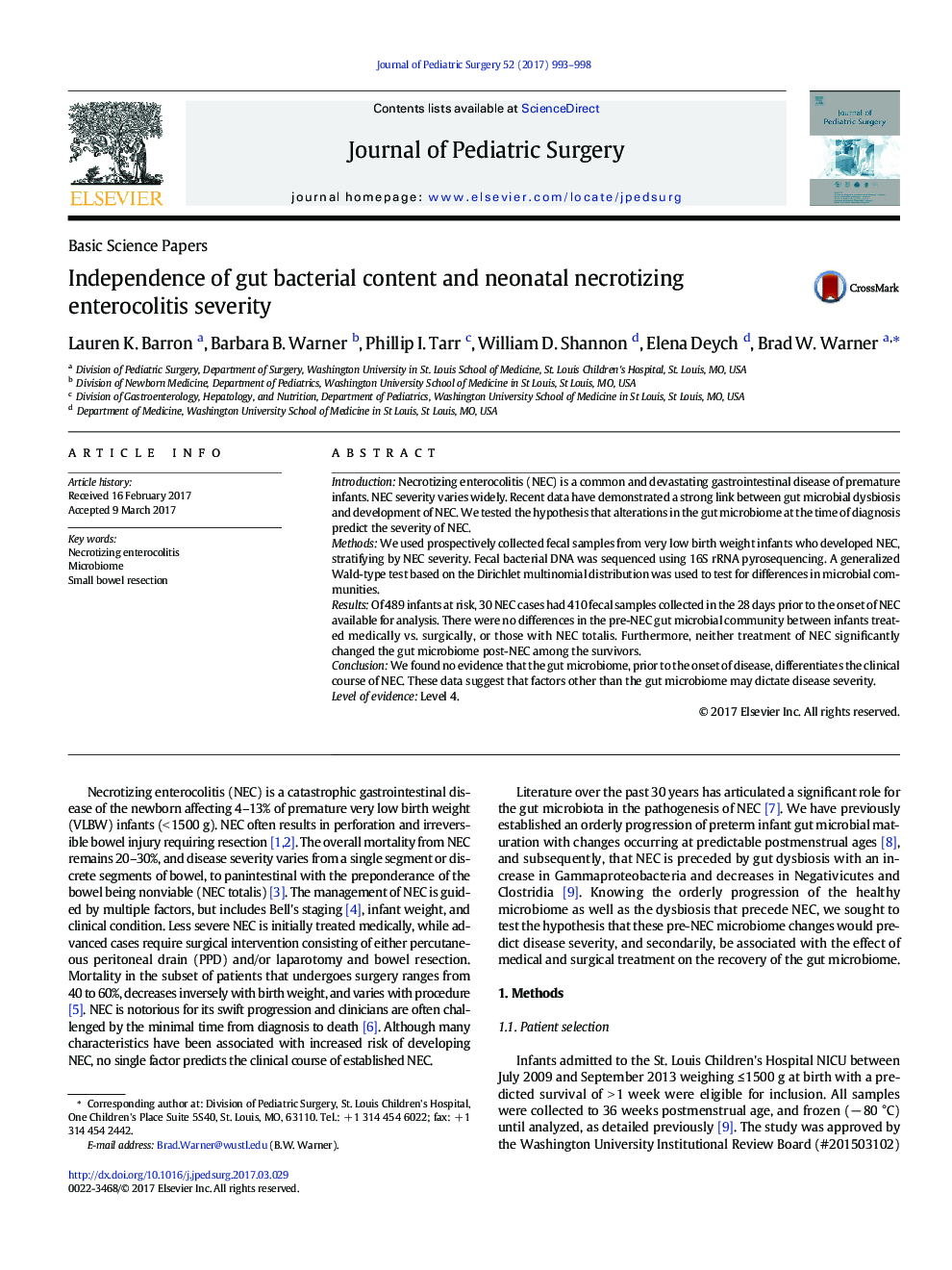| Article ID | Journal | Published Year | Pages | File Type |
|---|---|---|---|---|
| 5718507 | Journal of Pediatric Surgery | 2017 | 6 Pages |
IntroductionNecrotizing enterocolitis (NEC) is a common and devastating gastrointestinal disease of premature infants. NEC severity varies widely. Recent data have demonstrated a strong link between gut microbial dysbiosis and development of NEC. We tested the hypothesis that alterations in the gut microbiome at the time of diagnosis predict the severity of NEC.MethodsWe used prospectively collected fecal samples from very low birth weight infants who developed NEC, stratifying by NEC severity. Fecal bacterial DNA was sequenced using 16S rRNA pyrosequencing. A generalized Wald-type test based on the Dirichlet multinomial distribution was used to test for differences in microbial communities.ResultsOf 489 infants at risk, 30 NEC cases had 410 fecal samples collected in the 28Â days prior to the onset of NEC available for analysis. There were no differences in the pre-NEC gut microbial community between infants treated medically vs. surgically, or those with NEC totalis. Furthermore, neither treatment of NEC significantly changed the gut microbiome post-NEC among the survivors.ConclusionWe found no evidence that the gut microbiome, prior to the onset of disease, differentiates the clinical course of NEC. These data suggest that factors other than the gut microbiome may dictate disease severity.Level of evidenceLevel 4.
